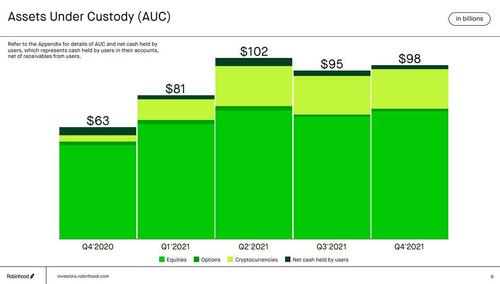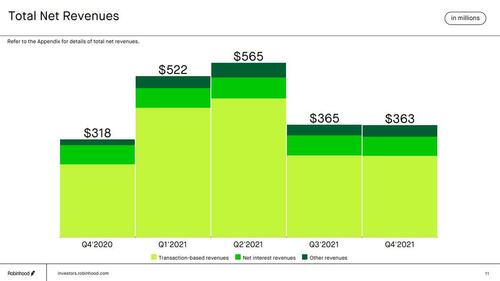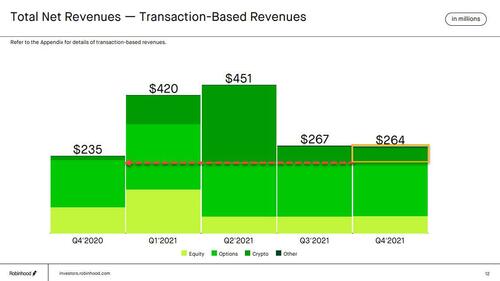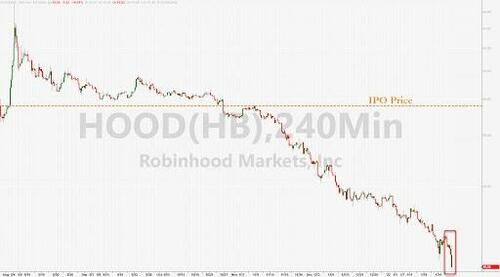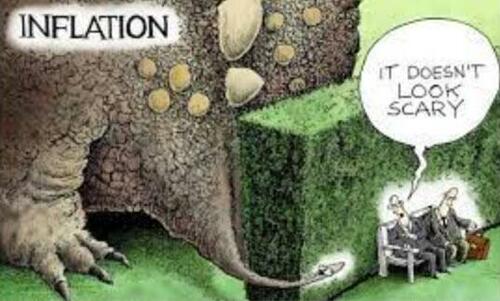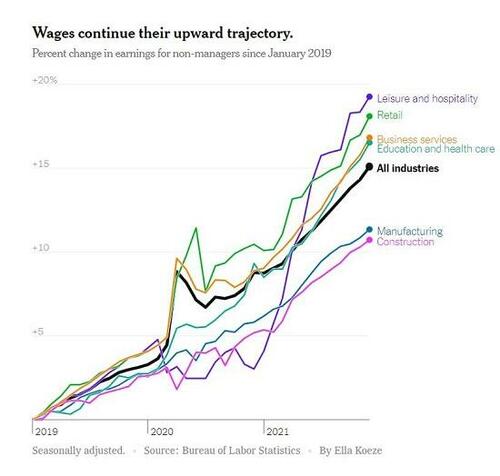Madison Cawthorn, a 26-year-old real estate investor who was elected to represent North Carolina’s 11th Congressional District in 2020, is one of many Republican politicians who have reinforced Donald Trump’s fantasy that Joe Biden stole the presidential election. Based on Cawthorn’s embrace of the “stop the steal” movement, his opponents are trying to prevent him from seeking reelection this year, arguing that he is disqualified from serving in Congress because he “engaged in insurrection” against the U.S. Constitution by inciting the Capitol riot.
That far-fetched claim, which implies that many of Cawthorn’s colleagues in Congress are likewise barred from federal office, is getting a serious hearing because North Carolina has a low threshold for seeking to prevent allegedly disqualified candidates from appearing on the ballot. When a challenger provides evidence to support a “reasonable suspicion or belief” that a candidate “does not meet the constitutional…qualifications for the office,” the candidate has the burden of showing “by a preponderance of the evidence” that he is in fact qualified. According to the voters who challenged Cawthorn’s candidacy, that means he “must prove that he was not involved in the insurrection of January 6, 2021.”
South Texas College of Law professor Josh Blackman noted some of the legal obstacles to that lawsuit earlier this month. In addition to those issues, the case for viewing Cawthorn as an insurrectionist rests entirely on his rhetorical support for Trump’s cause, which the challengers claim “led directly, intentionally, and foreseeably to the insurrectionists’ violent assault on the Capitol.” Even if you accept the idea that inflammatory rhetoric belongs in the same category as taking up arms against the government, nothing that Cawthorn said can fairly be construed as an endorsement of violence aimed at preventing Biden from taking office.
Section 3 of the 14th Amendment says “no person shall be a Senator or Representative in Congress…or hold any office, civil or military, under the United States…who, having previously taken an oath…to support the Constitution of the United States…shall have engaged in insurrection or rebellion against the same.” It adds that Congress may “remove such disability” by a two-thirds vote of the House and Senate.
That provision originally targeted former supporters of the Confederacy, although Congress ultimately voted to let them serve in the House and Senate. Otherwise, the history of Section 3 does not illuminate its reach very much. In a 2020 paper that he described as “the first detailed account of Section Three,” Indiana University law professor Gerard Magliocca noted that the provision “disappear[ed] from constitutional law” after the postbellum controversy over how to treat former Confederate leaders.
In January 2021, because Section 3 was suddenly in the news following the Capitol riot, Magliocca considered the provision’s relevance to that event. In a Lawfare essay, he said he had been “unable to find any particularly helpful authority” on the question of what counts as an “insurrection.” In the 1860s and 1870s, he noted, “everyone understood that the insurrection in question was the Confederacy, and no thought was given to what other insurrections might look like.”
Magliocca thought the Capitol riot itself was plausibly viewed as an “insurrection,” since “the mob was seeking to halt or overturn a core constitutional function at the seat of government, which can reasonably be described as an attempt to replace law with force.” Furthermore, the criminal charges against some of the rioters indicated that they “intended to inflict bodily harm on members of Congress, which can be reasonably understood as a direct attack on the legislative branch itself and, more generally, the existing government.”
But Magliocca rejected the suggestion that legislators like Cawthorn could be expelled from Congress under Section 3 simply because they backed Trump’s election fraud claims. “Without more, merely opposing the certification of electoral votes should not result in expulsion under Section 3,” he wrote. “Simply voting to reject the certification of some electoral votes (or speaking to explain those votes) under the procedures set forth by the Electoral Count Act is not sufficient. The Speech and Debate Clause should be construed to immunize these actions from an extreme sanction like expulsion. Moreover, these members were participating in a long-established legal process and making their voices heard in protest, as others have in the past. They were not breaking the rules.” The lawsuit challenging Cawthorn’s candidacy nevertheless cites his participation in the electoral-vote challenges as evidence that he “engaged in insurrection.”
The lawsuit also notes that Cawthorn promoted the “stop the steal” rally that preceded the Capitol riot. “January 6th is fast approaching,” he tweeted two days before the rally. “The future of this Republic hinges on the actions of a solitary few. Get ready, the fate of a nation rests on our shoulders, yours and mine. Let’s show Washington that our backbones are made of steel and titanium. It’s time to fight.”
Cawthorn delivered similar remarks at the rally, as did Rep. Mo Brooks (R–Ala.). Magliocca suggested that Brooks “might have a Section 3 problem depending on how his words are parsed and whether inciting an insurrection is tantamount to engaging in one.” Does that mean Cawthorn has “a Section 3 problem”? Only if you think that lending credence to Trump’s claims and urging his supporters to “make your voices heard” amounts to engaging in an insurrection.
“Wow, this crowd has some fight in it,” Cawthorn told Trump’s supporters. “The courage I see in this crowd is not represented on that hill….The Democrats, all the fraud they have done in this election, the Republicans hiding and not fighting—they are trying to silence your voice. Make no mistake about it: They do not want you to be heard.”
Cawthorn contrasted his own courage with the pusillanimity of Republican colleagues who were ready to recognize Biden’s victory. “At 12 o’clock today,” he said, “we will be contesting the election. But my friends, bear in mind that there is a significant portion of our party that says we should just sit idly by and sit on our hands. They have no backbone!”
Cawthorn emphasized that he was serving a higher cause than one politician’s desire to remain in power. “We’re not doing this just for Donald Trump,” he said. “We are doing this for the Constitution. Our Constitution was violated!” And he offered a solution: “My friends, I encourage you, go back to your states after today, hold your representatives accountable, make sure that they stood up for election integrity and make your voices heard.”
Cawthorn’s speech, which was full of the clichés that politicians favor and the baseless insinuations that Trump’s supporters tend to echo, may have been insipid and irresponsible, but it was not an incitement to insurrection. That interpretation hinges on reading fight literally rather than metaphorically, construing “make your voices heard” as a call to violence, and assuming that when Cawthorn talked about “contesting the election,” which in context clearly referred to the electoral-vote challenges, he really meant that Trump’s supporters should break into the Capitol, assault police officers, and terrify members of Congress.
In an interview on The Carlos Watson Show after the riot, Cawthorn said his objections to electoral votes for Biden focused on Wisconsin, where “there were some constitutional infractions about the way they carried out their elections.” But he disavowed some of Trump’s wilder allegations, such as the idea that Dominion voting machines were rigged or the claim that trucks delivered shipments of fraudulently marked ballots. “I definitely didn’t try to feed into that narrative,” he insisted.
Cawthorn, of course, made no such distinction in his rally speech, which broadly decried “all the fraud” supposedly committed by Democrats. He clearly did “feed into that narrative” simply by appearing at a rally predicated on the notion that Trump actually won the election.
But another distinction Cawthorn drew in that interview—between peaceful protest and violent interference with congressional certification of the election results—is not so easily dismissed. “Obviously, I think what happened on January 6 was despicable,” he said. “I thought it was conducted by weak-minded men and women who are unable to check their worst impulses and had very little self-control. [I] completely condemn it.”
As evidence that, contrary to such disclaimers, Cawthorn believes political violence is justified, the candidacy challenge quotes remarks that he made at a small gathering of Republicans in Macon County, North Carolina, last August. “The Second Amendment was not written so that we can go hunting or shoot sporting clays,” he said. “The Second Amendment was written so that we can fight against tyranny.” But this is the sort of boilerplate you often hear from politicians who support gun rights, and in context it’s clear that Cawthorn was not talking about violently resisting Biden’s election.
During the same appearance, Cawthorn did suggest that “if our election systems continue to be rigged, and continue to be stolen, then it’s going to lead to one place, and it’s bloodshed.” But then he added: “As much as I am willing to defend our liberty at all cost, there is nothing that I would dread doing more than having to pick up arms against a fellow American. And the way we can have recourse against that is if we all passionately demand that we have election security in all 50 states.” Again, this hardly counts as incitement to insurrection, let alone engaging in insurrection.
The people who are trying to disqualify Cawthorn from the ballot may believe he fully intended to provoke a riot while maintaining plausible deniability. I think that interpretation credits Cawthorn with more foresight and intelligence than he has thus far displayed in his fledgling political career. In any event, this is the sort of judgment that should be left to voters, who can decide for themselves whether they want to be represented by a Trump sycophant who happily warps reality in the service of his own ambitions.
The post Did Madison Cawthorn Engage in 'Insurrection' by Reinforcing Donald Trump's Election Fantasy? appeared first on Reason.com.
from Latest – Reason.com https://ift.tt/3r5LR88
via IFTTT




